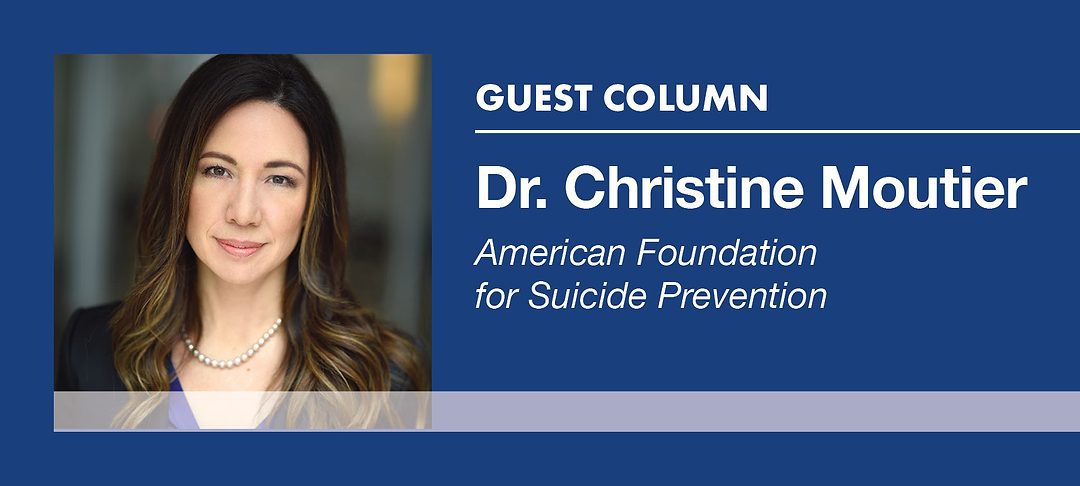
Home » We must take steps to care for older adults’ mental health
We must take steps to care for older adults’ mental health

May 13, 2020
No matter your age, mental health and well-being are influenced by numerous factors and are susceptible to change. Right now, most people, across all sectors of society, are being affected by the global health crisis related to the new coronavirus. One particular group we should keep in mind during this challenging time is older adults, whose routines and usual support systems may be disrupted.
The most powerful factors that impact mental health and well-being for older adults include:
• Mental health conditions. Often undiagnosed, mental health conditions (either previous or current) can have their first onset in later adulthood. Depression and severe anxiety are not a normal part of aging and can be addressed with clinical treatment and social support. The stress of COVID-19, the uncertainty it creates and the potential for older adults to be more susceptible to the virus can exacerbate any underlying risk for depression or anxiety.
• Physical health, pain and disability. Medical conditions are prevalent for most older adults and can often be well managed. When pain or chronic illness lead to functional disability, the individual’s sense of identity and well-being can be significantly impacted. During this COVID-19 outbreak, being in an older age demographic and having chronic health conditions are criteria for “high-risk” vulnerability to the virus. This can compound the stress many older adults feel.
• Social isolation, feeling lonely or disconnected. Any regular contact with family, neighbors, clubs, faith communities and social services (such as meal delivery or home care personnel) can serve as important points of contact. These can be a lifeline for social connection. Social distancing can create further isolation. The current crisis is affecting almost everyone’s routines, mass transportation and some “non-essential” social services. This means that the usual social support and contacts older adults have with others may be diminished.
• Losses. They are a more frequent experience for older adults and can include the death of friends or family and other kinds of losses, such as driving, autonomy, financial or functioning in various roles. Older adults’ capacity to adapt and heal through grief and loss is generally vast. Yet grief can become complicated for some. When losses occur in combination with other stressors, mental health deterioration can occur. The COVID-19 outbreak can feel like a threat that could bring about even more potential loss, adding to the older adults’ baseline experiences of loss.
• Disruption in routine, such as eating, sleep, daily structure, sense of purpose and relationships. There is a good chance the pandemic has affected the older adult’s usual routines: where they can shop, eat, walk and socialize.
Everyone has a role to play in supporting older adults during the crisis.
Here are some things you can do:
• Regularly check in on your older adult friends, neighbors and family members.
• Call or video-chat with them, since texting and social media may not be the best method of connecting.
• Ask how they are doing during this period of time, how their routines might have had to change and what kinds of things they are doing to cope with the stress.
• Encourage them to keep doing the activities that are allowable in their local area and that they identify as being most helpful for them, such as daily exercise or a walk, stretching, listening to or playing music, reading, enjoying favorite or humorous shows, puzzles, games, social activities and meditation or prayer.
• Help them seek medical advice or care if they are experiencing symptoms of physical or mental health decline.
• Offer to bring a meal, run an errand, or walk the dog, if your town allows for these activities.
• Seek advice based on their experience and wisdom.
• Express gratitude and appreciation for any support you get from your relationship with them. Let them know what you admire about the way they conduct their life.
Most importantly, communicate with the older adults in your life and express support. Let them know you’re there for them and that you care. Make sure they know you are grateful they’re part of your life.
It’s important that we all care for each other during this challenging and uncertain time. By taking a few simple actions, you can make all the difference in an older person’s life when they may need it the most.
Dr. Christine Moutier is the chief medical officer for the American Foundation for Suicide Prevention.
Local News
KEYWORDS may 2020





